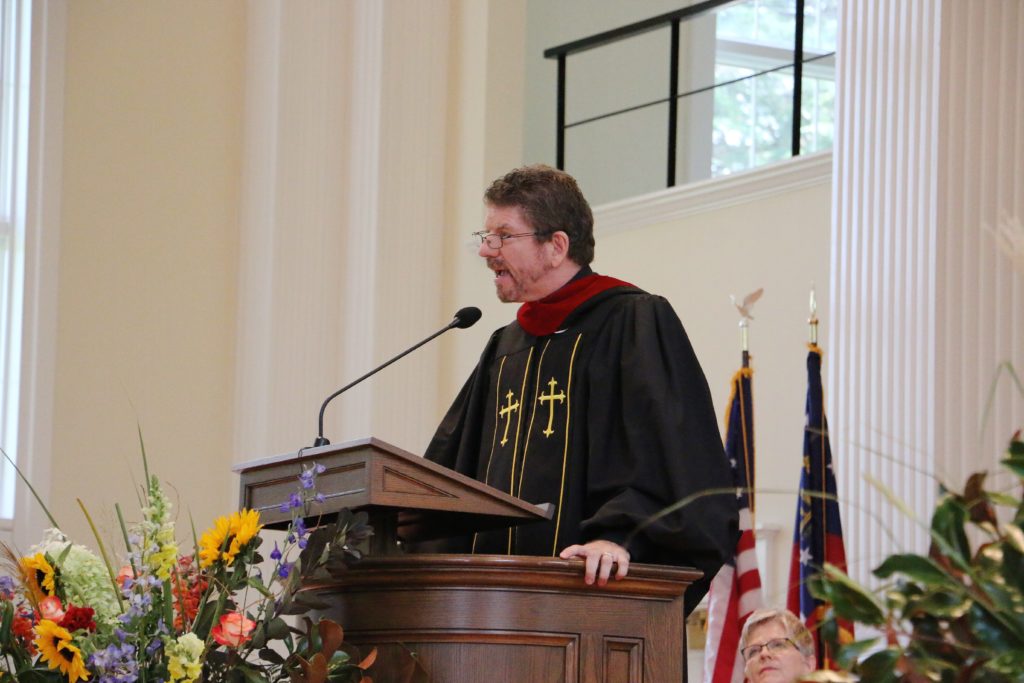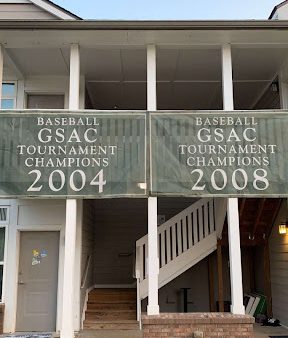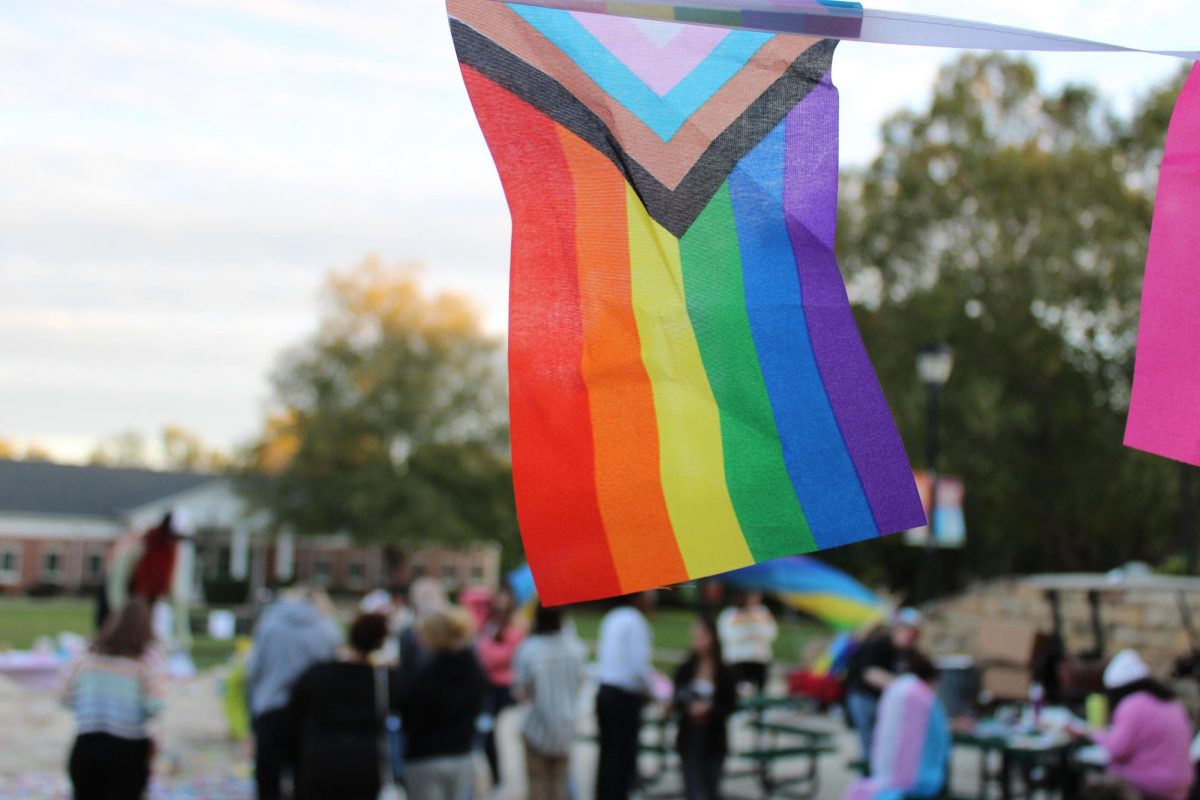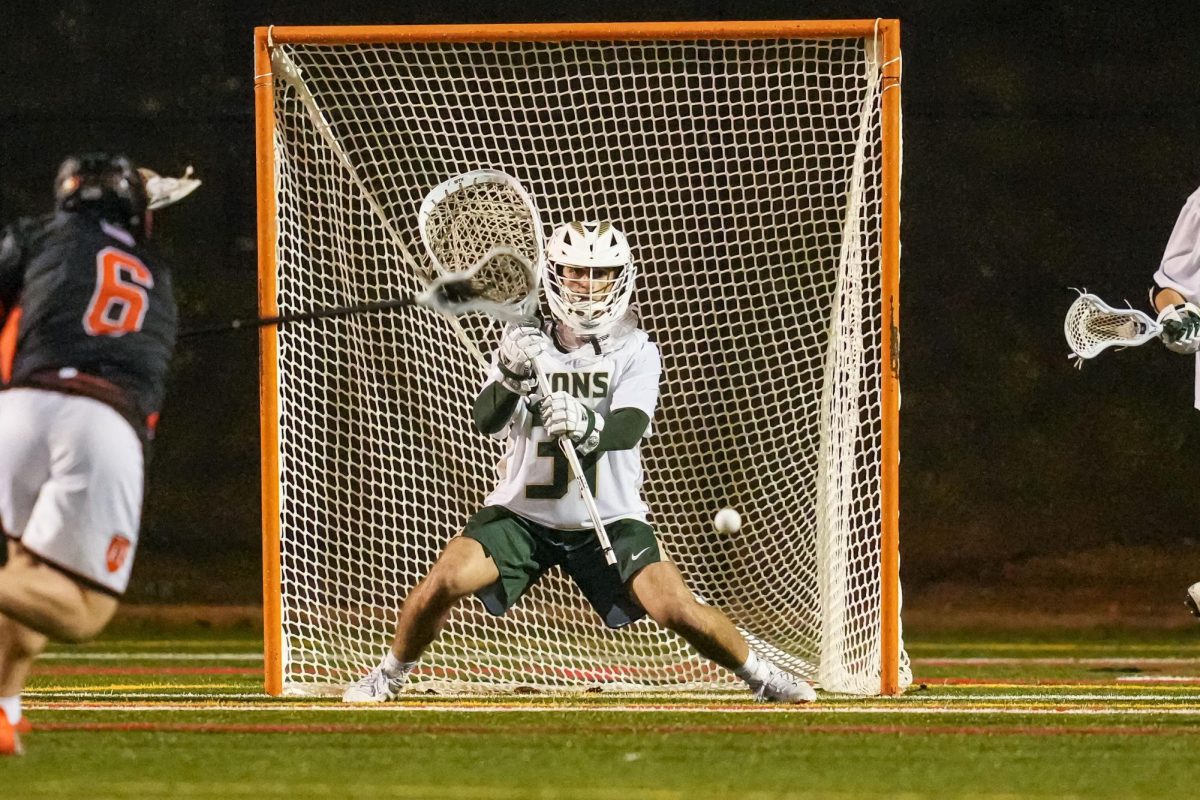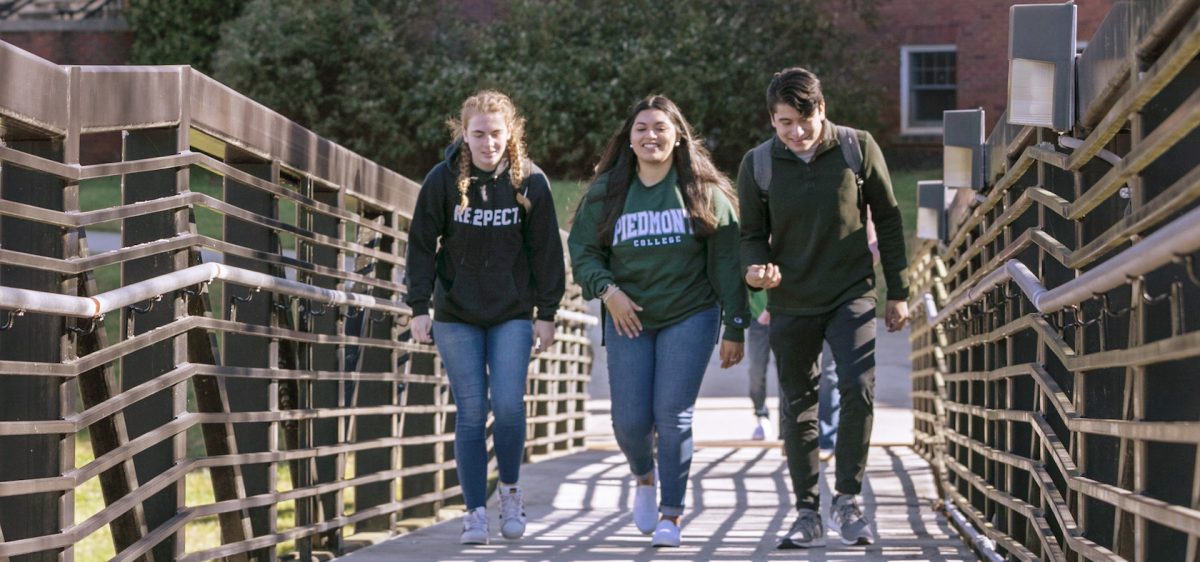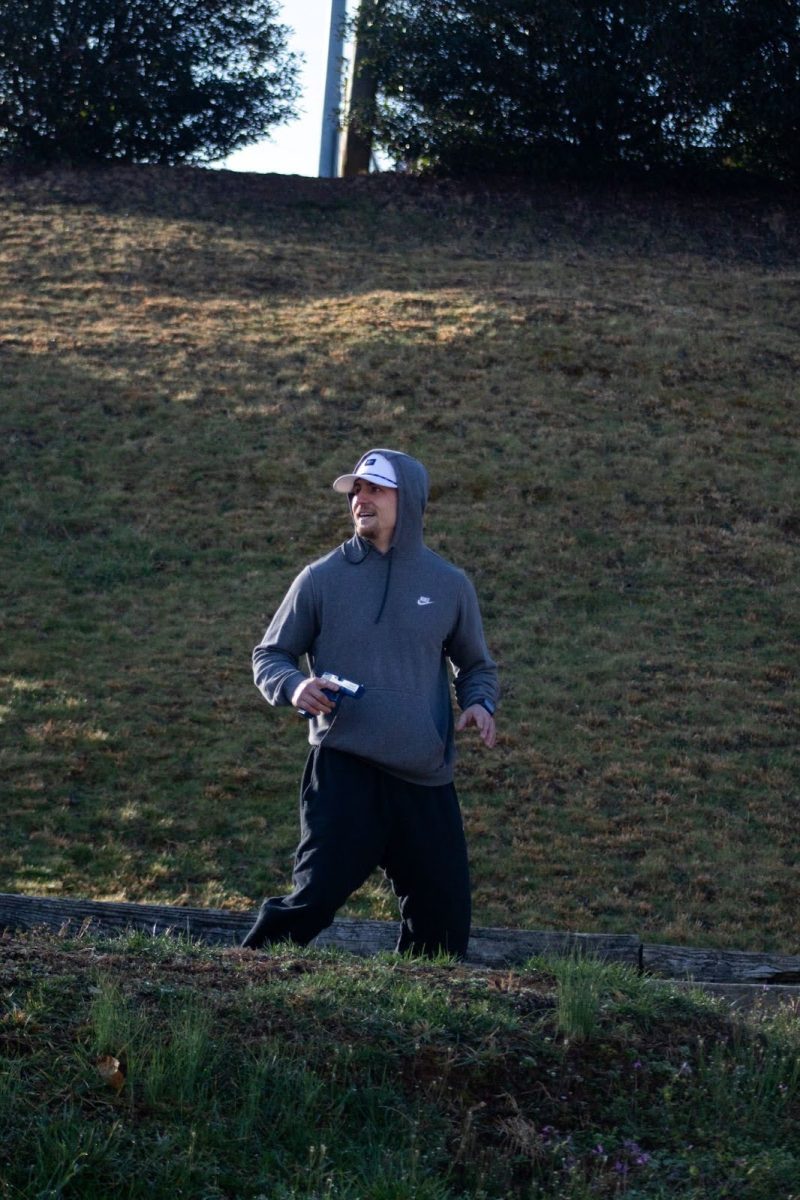Best Feature (2nd place) from the Georgia College Press Association.
The campus minister at Piedmont College is a radical. His brand of radical love and inclusion is not what some would expect from a pastor. For many Piedmont students, that is precisely why he is needed here.
The Rev. Timothy Garvin-Leighton, affectionately known to his students as Rev. Tim, has spent his adult life speaking out against discrimination and inspiring others to stand up for those who have been condemned for being different. His work in the anti-apartheid, affordable housing and LGBT rights movements have informed who he is as a minister, mentor and now teacher.
“He brings a positive energy and a real passion for biblical studies and social justice issues,” said Dr. Tim Lytle, professor of philosophy in the religion and philosophy department. “I get excited seeing how excited he gets about what he’ll be teaching next.”
Garvin-Leighton, 52, came to Piedmont last semester from UC Davis. There, in addition to campus minister, he was the executive director of a multi-faith living community of students from all major religions and various cultural backgrounds.
“I encountered students every day of the week who found homosexuality to be sinful and I had to somehow help those students to love their housemates,” Garvin-Leighton said. “To be a model of respectful love for people without demanding that they accept my view of the world.” Garvin-Leighton has been an advocate for LGBT students, and they see in him the care and compassion he has for them. This is especially important because the church is often the last place these students expect to find an ally.
“Personally, it’s nice to have a religious figure be so open and accepting — I’ve never had that,” said Tatiana Burkett, president of the Piedmont Gay-Straight Alliance. “From the standpoint of the GSA, it’s nice not to have to persuade him that our community is valid.”
Said Garvin Leighton: “Even if you don’t want to be a Christian, even if that’s not your journey or it was at one point and you’re not that anymore, the fact that you can know someone who is Christian and know that there are folks who love you because of who you are- that’s, to me, a powerful thing.”
Garvin-Leighton attributes his emphasis on inclusion to his own experience in the church. He was initially baptized as a Catholic. But his mother, because she had divorced, was barred from taking communion. At the suggestion of the family physician, who was also an organist, she began attending the Congregational church, which accepted her and her infant son unconditionally.
“No one looked at us weird because she was a single woman with a kid,” said Garvin-Leighton of his experience at the church. “The pastor and his family were super welcoming.”
Maine, where Garvin-Leighton grew up in the 1970s, was a mostly white, affluent environment. Most of his friends from church had parents who were doctors and lawyers and had swimming pools in their backyards. For a time, Garvin-Leighton and his mom lived in a housing project.
“But they never once looked at us like there was something wrong with us,” Garvin-Leighton said. “They loved us.” Today, he wonders what would have happened if she had stopped attending church altogether. “Would I be a pastor?” he asked. “Would I even be a Christian today? Would I know God in the way that I do? Who knows? My mom was never angry or spiteful about that, but clearly that was painful for her.”
At an unusually early age, Garvin-Leighton decided he wanted to be a brain surgeon. Adults were amused, but he was adamant. That is, until he was in junior high, and changed his mind. “I came home one day and said, ‘I don’t want to be a neurosurgeon anymore. I want to be a minister,”’ he said.
A simple realization altered his plan. “Surgeons work with people when they are very sick, and they are like problem solvers,” he said. “The neurosurgeon does the operation and the person either gets better or doesn’t, but that’s it. That’s your whole experience with the person.”
What had attracted him to medicine was the caring aspect of the profession. But as he witnessed the role his pastors held in his community, he realized they were involved in every aspect of their parishioners’ lives. He saw them perform baptisms, marriages and funerals. In his own life, Garvin-Leighton saw the way his pastor helped his mom when she had problems. And he also saw him at his birthday party.
“It was like a light bulb,” he said. “I don’t just want to be there to fix their brokenness. I want to be there when they have joyful times, sad times and everything in between.”
Tim was an only child, and the church became his extended family. He got involved in his youth group, and went to church camp every summer. It was there that he experienced an even deeper level of inclusion when a counselor disclosed that he was going through a divorce because he was gay.
“We got to work through it, because we could talk about it in the group together, and we already loved these people,” he said. “And that was it. He’s still a great counselor, still the same nerdy quirky guy. But now he’s able to be honest, not only with us, but with himself.”
Other counselors — two who’d had abortions, another a heroin addict in recovery — also shared their stories with the campers. It had a profound influence on the teenagers, who were used to joking around and calling each other “fags.”
And it had a lasting impact on himself, Garvin-Leighton said. “When someone walks through the door, whoever they are, I want them to know that I’m going to love them and welcome them and embrace them,” he said. “I have kept that in the forefront of my life all the years I have been a pastor. I experienced that as a kid, and that ultimately became what I wanted to be, a model for other people. Because to me that’s the essence of what ministry means, this sharing of God’s unconditional love.”


